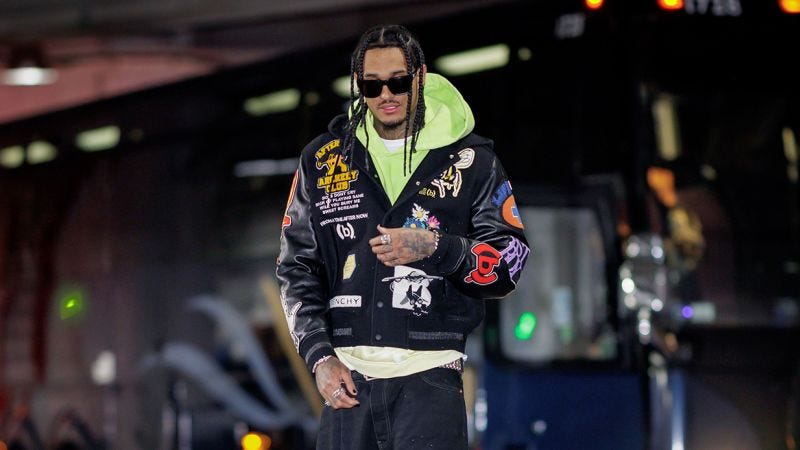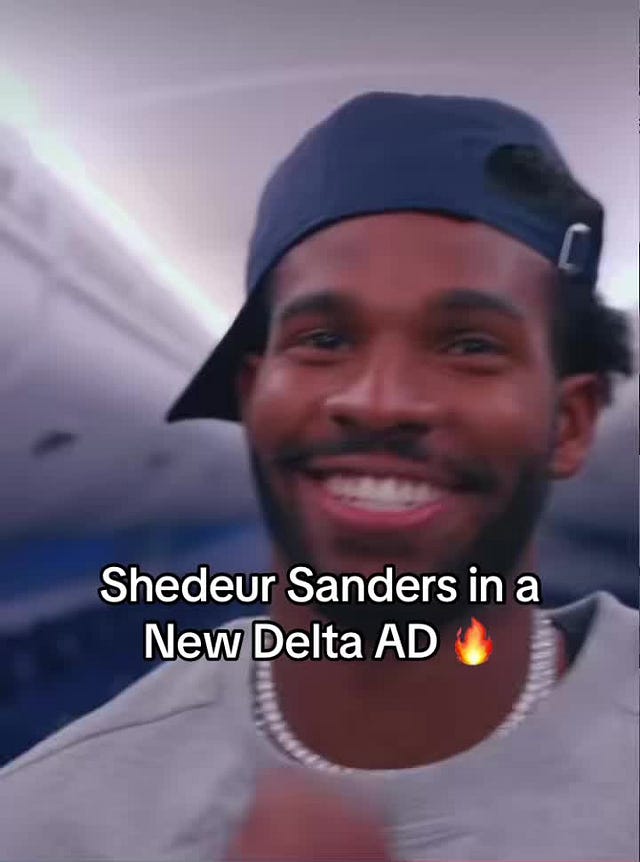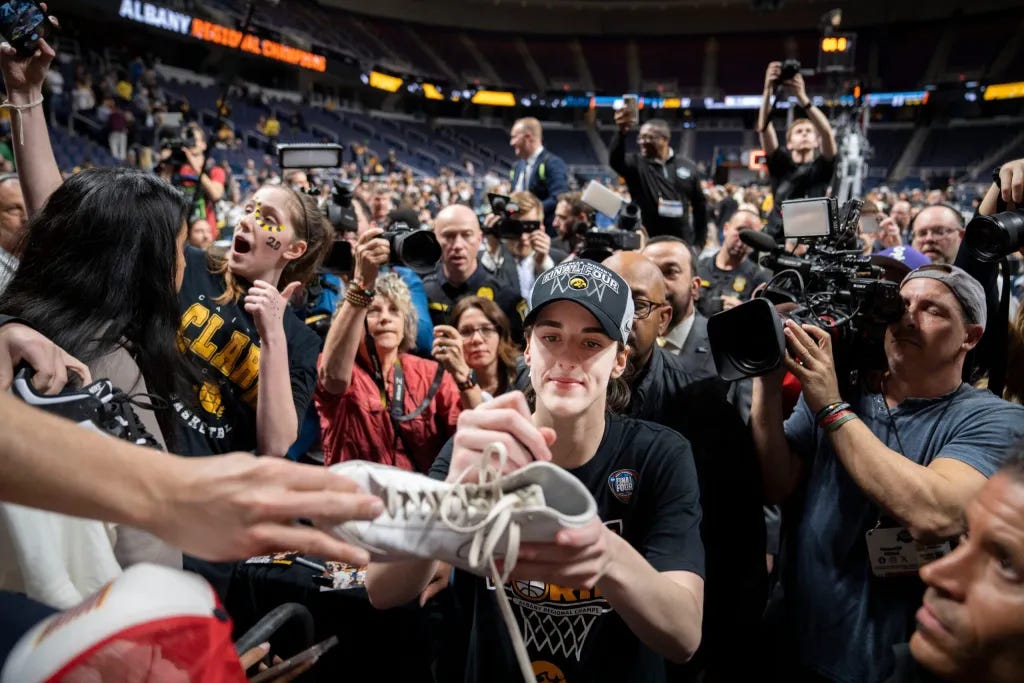This past month has made one thing clear: the era of the well-branded athlete is here. And they’re not waiting until their first paycheck or pro contract to get serious about their platform. From viral moments to merch ownership to full-on fashion collabs, today’s athletes are giving us a masterclass in storytelling, strategy, and self-definition.
In this week’s edition, I’m talking about three shifts that I think signal where it’s all going: visibility vs. value, the new rookie rulebook, and the rise of direct-to-community influence. Let’s get into it.
The Cost of Visibility
There’s a clip. A quote. A tunnel fit. A viral moment.
It spreads fast. Gets reposted. It hits ESPN, TikTok, YouTube Shorts, Twitter, and sports blogs. Everyone’s talking—but the athlete? Often not paid a dime.
In 2025, visibility is plentiful. What’s still scarce is ownership. When players go viral—whether for a buzzer-beater, an emotional press conference, or a standout outfit—it drives impressions, engagement, and sometimes even revenue... for everyone but the athlete.
Athletes at every level need to think proactively: How are you protecting your name, image, and likeness? Are you capturing your own content? Do you know how to monetize a viral moment—or even just a well-performing post?
This is a conversation I have often had at The Gifted Collective. We’re helping young athletes understand that social capital is capital. If someone else is profiting off your likeness, you need to have a seat at the table—or build your own.
Because your moment isn’t just a highlight, it’s leverage. And you should be prepared to use it.
The New Rookie Rulebook
Gone are the days when rookies arrived at the pro level with nothing but talent and a duffle bag.
This year’s 2025 rookie class—across the WNBA, NFL, and soon, the Olympics—is showing up with entire ecosystems. They have agents, stylists, social media managers, NIL reps, and full-on content teams. But more than that, they have clarity.
Take WNBA rookies like Deja Kelly (pictured above), Paige Bueckers, Hailey Van Lith, and Aziah James—they’re entering the league with loyal followings, NIL experience, and business savvy. These are athletes who’ve been building brand equity since high school, balancing performance with partnerships and showing up consistently across platforms. They know how to lead interviews, drop merch, and move with intention.
Then there’s NFL talent like Ashton Jeanty, whose draft night included a Swarovski-dripped Crocs look and a nationally aired Opendoor campaign. Or Shedeur Sanders, who entered the league with a full brand infrastructure already in place—from production to merch fulfillment to strategic endorsements with brands like Gatorade and Delta Airlines.
This isn’t an accident. These athletes—and their teams—are planning ahead. Rookie season isn’t the warm-up. It’s the launch pad.
And this mindset? It’s not exclusive to D1 stars. At The Gifted Collective, we’re helping high school athletes prepare the same way—with storytelling tools, media training, and platform strategy—so they’re not waiting to be discovered. They’re ready from the first post, the first game, the first opportunity.
Because rookie year isn’t about learning on the job anymore—it’s about stepping into the spotlight fully formed.
The Power of Direct-to-Community
Here’s the shift: athletes don’t want middlemen. They want a meaningful connection.
And they’re finding it by going directly to their fans.
Fans don’t just want to watch athletes. They want to connect with them—to buy from them, hear directly from them, and support their work on their terms. And athletes are responding in kind.
We saw it when Shedeur Sanders’ jersey became a talking point—fans pledged to purchase directly from his personal store instead of the NFL’s official merch platform. That’s not just a fashion choice—it’s a values statement. It’s about supporting the athlete in a way that aligns with ownership.
We’re seeing it with Angel Reese, whose Reebok collabs reflect her personality, style, and story, not just her stats. She’s building a lifestyle brand, not just a shoe line. Even college athletes are finding ways to connect directly with fans through subscription content, limited drops, newsletters, and more.
This is what I call community-led branding. It’s no longer about getting the biggest deal—it’s about the most aligned one. One that keeps your audience close, your values visible, and your influence growing.
At The Gifted Collective, we’re encouraging athletes to think like founders. Build a brand with depth. Show up like a business. Serve your audience directly.
Because this era isn’t just about being marketable—it’s about being meaningful.
And if you’re building something—whether it’s a brand, a business, or a platform—ask yourself: are you waiting to be discovered? Or are you already showing up like the main character?
Let’s build accordingly.
Until next time,
Andrea










